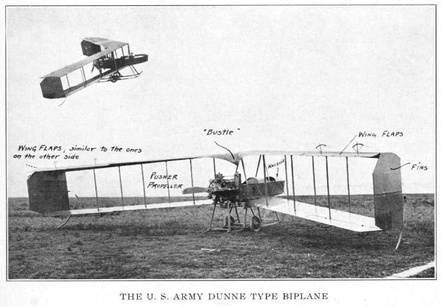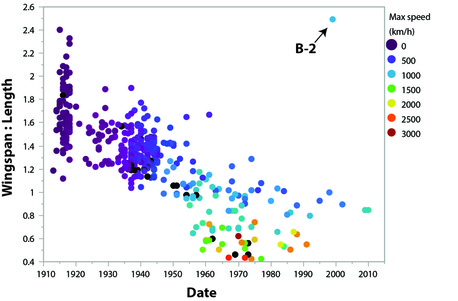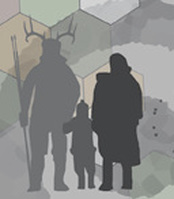
Over the course of the last two job cycles, I’ve done short interviews over the telephone, via Skype, and at the AAA meetings and traveled for campus interviews at four schools. Each of these experiences has made me a better job candidate, or at least better prepared to do interviews. Collectively, my experience on the job market has also left me with the impression that much of our culture for filling academic positions, especially tenure-track positions, is a little silly. Listening to the stories of others and triangulating their experiences with mine has only amplified that impression.
To be clear, I don’t dislike academics or academia in general. Not at all. I am an academic and academia is the life I have chosen for myself. But I do think it’s worthwhile to consider whether some of our conventions for choosing the “best” person for a position make sense and accomplish what they purport to accomplish. This is a big subject with a lot to talk about – horror stories related to academic searches are easy to find. I’m just going to start with this question:
Do interviews really need to take three days?
The multi-day, campus visit interview for the top three or four “short list” candidates is a tradition in anthropology in this country. The standard formula includes numerous meetings with individual faculty members, meals (breakfasts, lunches, and dinners) with one or more faculty members, a job talk, tours (campus, town, laboratories), pizza with the students, probably a meeting with some sort of dean, etc.
Sound expensive, time-consuming, and tiring? You bet it is. So why do we do it? The standard answer is that, because these are tenure-track positions, it is really important for both the candidate and the department to get to know the other thoroughly to ensure a good “fit.” I’ve heard this a lot: We’re picking a colleague for life, so we have to make sure we will get along; or It’s more like picking a marriage partner than an employee.
The rationale makes sense, of course: you want to make sure an apple isn’t rotten before you give it a quasi-permanent home in the bunch. So . . . the departments that use multi-day interviews to inoculate themselves against adding a bad apple are filled with people who all get along over the long term, right? Um . . . If you are a person who likes to look at evidence, you could quite fairly point out the degree of rancor and dysfunction in many anthropology departments and ask where it came from. Those departments were presumably built using a strategy of carefully vetting candidates for “fit,” guarding against the admittance of a bad apple. If this strategy functioned as it is claimed, academic anthropology should be populated by departments that can compromise and make reasonable decisions with a minimum of dysfunction. I’m sure those departments exist. I’m also sure that many departments do not fit that description. Where did things go wrong?
I think two points about the mythology of multi-day interviews are relevant here. First, the idea that rancor, tension, and unpleasantness in a small group environment can always be attributed to a single “bad apple” is erroneous. Sure, a bad apple can cause those things, and this is a good reason to try to prevent him or her from getting into the bunch. But real unpleasantness and dysfunction can also emerge through the interactions of a whole bunch of good apples (yep, I just played a complex systems card there). A bad apple can spoil the bunch, but it is a fallacy to presume that you can ensure harmony at the group level by only picking good apples. Interactions between and among individuals are just as important as the particular qualities of those individuals.
So it seems like understanding how a new apple with interact with the existing apples would be important. This brings me to my second point: the staged, formalized interactions that occur over the course of a multi-day interview do not provide accurate information about the qualities of interactions that may occur in the future. This is true, I think, from both sides. The interview stage requires candidates to constantly perform and departments to try to present themselves in the best light possible. I have been told “we all get along, everybody gets along” during every campus interview I have done. I’m not sure if I was really expected to believe those lines, or if that was just some de rigueur interview pillow talk. Maybe it is more-or-less true in some cases, but I know that those statements were far from accurate descriptions of the environments at some of the places I interviewed. A department can appear to get along for three days while a candidate is there just like I can wear a suit for three days while I’m visiting. On my end, I will admit that I'm just wearing the suit for interview: it isn't going to happen every day.
I do think it is important for the candidate and existing faculty to have a chance to size each other up. But how long does that really need to take? At one school, I was told by a professor that the purpose of the campus visit was simply to “see if the candidate was a butthead or not.” He and I agreed that one could do that relatively quickly (the campus interview at that school was over a single day). He was not a butthead, I was not a butthead. We had that figured out before the waiter came back for the first coffee refill.
I’m not sure if other places in the world engage in these long, drawn out interviews, and I’m not sure how or why this custom arose here. I’ve been told that the multi-day academic job interview is an American convention that doesn’t exist in Europe. They seem to be doing just fine without it.
Over the last two job cycles I have come to enjoy some aspects of these multi-day interviews. It is nice to have the chance to meet everyone in a department one-on-one, it is nice to have someone drive you around town and show you around campus, and it is nice to go out to dinner and be able to talk to people in a variety of different settings. Each time I did one of these interviews, I tried to look at it as an opportunity: I met a lot of people, got a lot chances to explain my work, got to hone my research presentation, and got to try to improve my record of going all day without getting food on my suit jacket. I took each interview seriously and gave it my best shot.
I think many (but not all) of the existing faculty I met also like the multi-day interview format. Because multi-day interviews can be enjoyable to both sides, however, doesn’t mean they do what they’re purported to do. It just doesn’t take that much time to tell whether or not an apple is rotten. And no amount of interaction on the artificial stage of the job interview is going to reveal how a good apple is going to interact over the long term with all the other apples already in the department or with unknown apples that will be added in the future. It is nice to meet and talk with people over the course of a few days, but it doesn’t provide anyone with a crystal ball.
As a job candidate, I don’t expect any department to be completely free from disagreement or personal animosities that have emerged and developed over the years. I think that those things are a normal product of prolonged human interactions. I presume that it will be part of my job as the newest faculty member to try to understand and navigate the existing human landscape within the department. I’m ready to get to work and will do the best I can in whatever situations I find myself in. Perhaps that will be the most important thing I will tell you during my interview. It is true whether or not I’m wearing a suit and it is applicable whether or not people in your department get along when the stage lights are off.





 RSS Feed
RSS Feed
